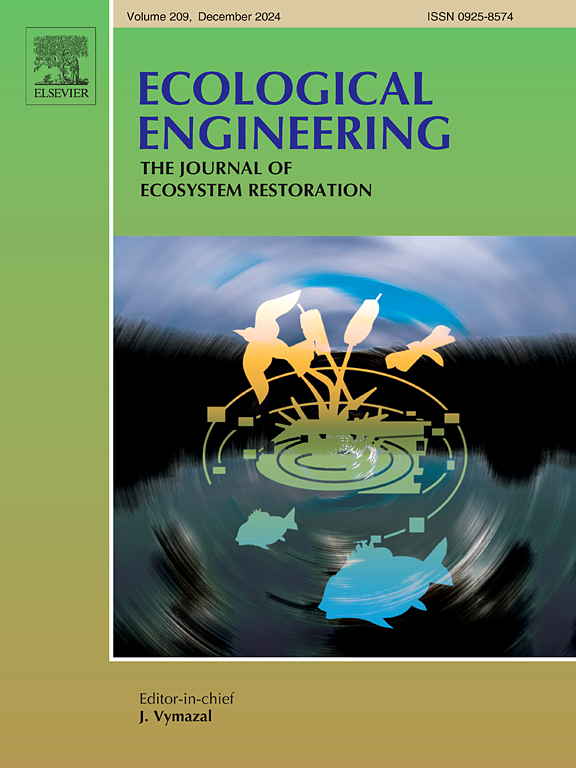Editorial: Pollutant dynamics and Wetlands (WETPOL 2023)
IF 3.9
2区 环境科学与生态学
Q1 ECOLOGY
引用次数: 0
Abstract
The 10th International Symposium on Wetland Pollutant Dynamics and Control (WETPOL), held in Bruges, Belgium (September 10–14, 2023), convened 182 participants from 32 countries to discuss recent advances in wetland-based pollution control. The program included 120 oral presentations, 29 posters, and seven keynote lectures, covering nutrient and contaminant removal, climate resilience, and sustainable water management. Three field excursions showcased wetland applications, including greywater reuse via green walls, hybrid constructed wetlands for horticulture and municipal treatment, and nature-based systems for water reuse and ecosystem restoration. A special issue in Ecological Engineering features 11 selected papers addressing nitrogen and microplastic removal, biomass composting, and the role of aeration in vertical flow wetlands. Additional studies explored reactive transport modelling, flood control, and riparian buffer performance under frozen conditions. Full-scale case studies examined iron removal from mine drainage and biodiversity integration in circular systems. WETPOL continues to bridge fundamental research and applied solutions, fostering global collaboration and innovation in wetland science.
编辑:污染物动态与湿地(wepol 2023)
第十届湿地污染物动态与控制国际研讨会(wepol)于2023年9月10日至14日在比利时布鲁日举行,来自32个国家的182名与会者齐聚一堂,讨论了基于湿地的污染控制的最新进展。该项目包括120个口头报告、29个海报和7个主题演讲,内容涉及营养物和污染物去除、气候适应能力和可持续水资源管理。三个实地考察展示了湿地的应用,包括通过绿墙回用灰水,用于园艺和市政处理的混合人工湿地,以及用于水回用和生态系统恢复的基于自然的系统。《生态工程》的一期特刊刊载了11篇精选论文,内容涉及氮和微塑料去除、生物质堆肥和垂直流湿地曝气的作用。另外的研究探讨了反应性输运模型、洪水控制和冻结条件下的河岸缓冲性能。全面的案例研究考察了矿山排水中的除铁和循环系统中生物多样性的整合。湿地研究中心继续在基础研究和应用解决方案之间架起桥梁,促进湿地科学领域的全球合作和创新。
本文章由计算机程序翻译,如有差异,请以英文原文为准。
求助全文
约1分钟内获得全文
求助全文
来源期刊

Ecological Engineering
环境科学-工程:环境
CiteScore
8.00
自引率
5.30%
发文量
293
审稿时长
57 days
期刊介绍:
Ecological engineering has been defined as the design of ecosystems for the mutual benefit of humans and nature. The journal is meant for ecologists who, because of their research interests or occupation, are involved in designing, monitoring, or restoring ecosystems, and can serve as a bridge between ecologists and engineers.
Specific topics covered in the journal include: habitat reconstruction; ecotechnology; synthetic ecology; bioengineering; restoration ecology; ecology conservation; ecosystem rehabilitation; stream and river restoration; reclamation ecology; non-renewable resource conservation. Descriptions of specific applications of ecological engineering are acceptable only when situated within context of adding novelty to current research and emphasizing ecosystem restoration. We do not accept purely descriptive reports on ecosystem structures (such as vegetation surveys), purely physical assessment of materials that can be used for ecological restoration, small-model studies carried out in the laboratory or greenhouse with artificial (waste)water or crop studies, or case studies on conventional wastewater treatment and eutrophication that do not offer an ecosystem restoration approach within the paper.
 求助内容:
求助内容: 应助结果提醒方式:
应助结果提醒方式:


